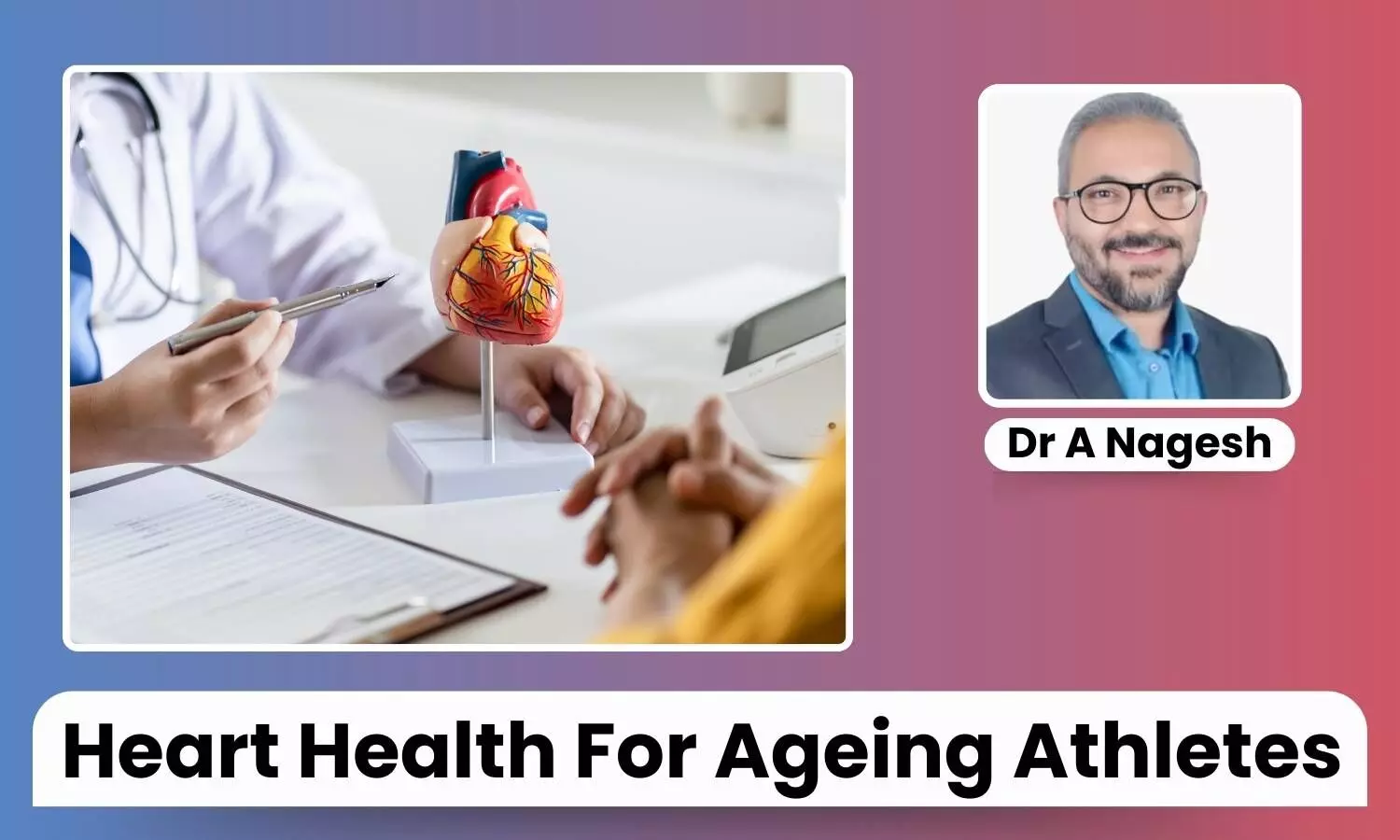Heart Health For Ageing Athletes: How To Keep Your Heart Healthy As You Age - Dr A Nagesh

While ageing makes changes to the heart inevitable, remaining active offers vitality that many wish to preserve. Yet as time takes its toll, special care is crucial, especially for those whose passion has been sport. Exercise benefits the heart greatly, but wellness demands balancing fitness and cardiovascular health carefully.
What Changes Happen in an Ageing Heart?
The heart inevitably thickens with years, and arteries may stiffen as efficiency declines system-wide. For athletes, prolonging exertion sometimes masks or exacerbates these shifts, potentially enabling issues like arrhythmias or clogged pipelines. "Athlete's heart," an innocent swelling from long exercise, could also cloak underlying troubles.
Key Risk Factors for Older Athletes
None are immune from heart disease, not even the fit. Risks for older athletes include:
1. Family History: Genetics significantly influence heart health.
2. Chronic Conditions: Hypertension, diabetes, and high cholesterol are common in older adults.
3. Lifestyle Habits: Smoking, poor diet, and excessive alcohol can potentially cancel exercise's perks
4. Overtraining: without sufficient rest may spark inflammation and strain on the heart.
Strategies to Keep Your Heart Healthy
Staying active is paramount, yet a tailored approach is pivotal for older athletes. Here are some recommendations:
1. Regular Health Check-Ups
Annual screenings, including ECGs or stress tests, can detect potential problems early to handle swiftly. Seek immediate medical advice if you experience chest pain, shortness of breath, or fatigue.
2. Adapt Your Exercise Routine
Incorporate low-impact activities like walking or swimming alongside strength and flexibility exercises. Balance high-intensity workouts with adequate calm, restoration, rest and recovery days.
3. Monitor Your Heart Rate
Use a heart rate monitor to train safely within one's limits. Calculate your maximum heart rate as 220 minus your age and aim for 50-85% during workouts, depending on intensity.
4. Follow a Heart-Healthy Diet
Prioritize:
• Fruits, Vegetables, and Whole Grains: High in fibre and antioxidants.
• Lean Proteins: Promote muscle repair without straining the heart.
• Healthy Fats: Include omega-3-rich foods like fish and nuts.
• Limit Salt and Sugar: Excess can raise blood pressure and lead to metabolic issues.
5. Listen to Your Body
Avoid pushing through pain or fatigue, as rest days equal workout days for avoiding injuries or overtaxing the heart
6. Manage Hydration and Stress
Drink enough water & stay hydrated to support cardiovascular function. Practice mindfulness to reduce stress, which can negatively affect heart health.
Recognizing Warning Signs
Know when to stop and seek help. Symptoms like chest pain, dizziness, or irregular heartbeats warrant immediate attention.
Conclusion
Ageing need not halt an active lifestyle. With regular check-ups and a balanced approach to fitness, older athletes can protect their hearts while maintaining their sport passion for years ahead. Nourish this, your strongest ally, and it will sustain your zest long term.


